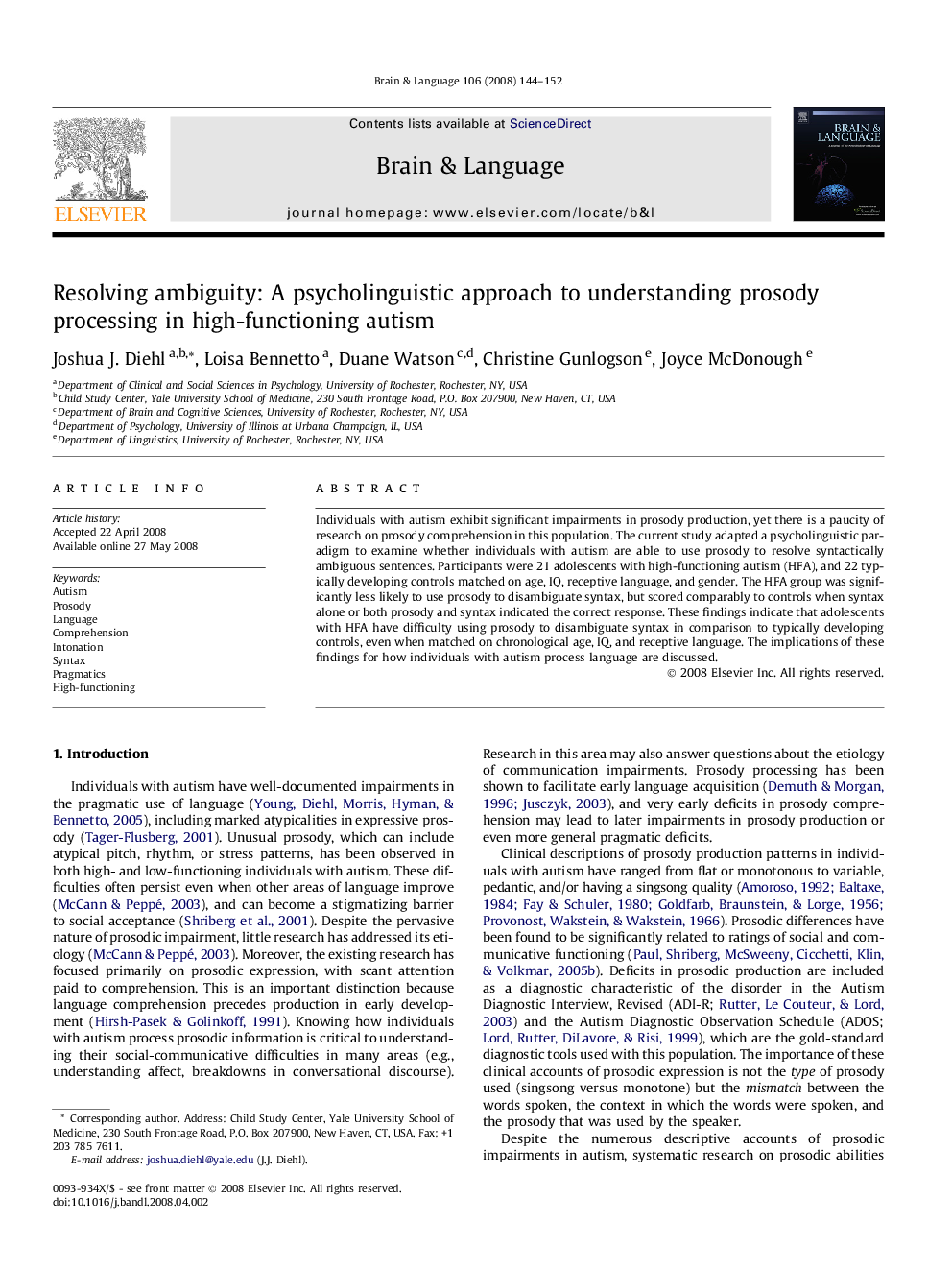| Article ID | Journal | Published Year | Pages | File Type |
|---|---|---|---|---|
| 925873 | Brain and Language | 2008 | 9 Pages |
Individuals with autism exhibit significant impairments in prosody production, yet there is a paucity of research on prosody comprehension in this population. The current study adapted a psycholinguistic paradigm to examine whether individuals with autism are able to use prosody to resolve syntactically ambiguous sentences. Participants were 21 adolescents with high-functioning autism (HFA), and 22 typically developing controls matched on age, IQ, receptive language, and gender. The HFA group was significantly less likely to use prosody to disambiguate syntax, but scored comparably to controls when syntax alone or both prosody and syntax indicated the correct response. These findings indicate that adolescents with HFA have difficulty using prosody to disambiguate syntax in comparison to typically developing controls, even when matched on chronological age, IQ, and receptive language. The implications of these findings for how individuals with autism process language are discussed.
